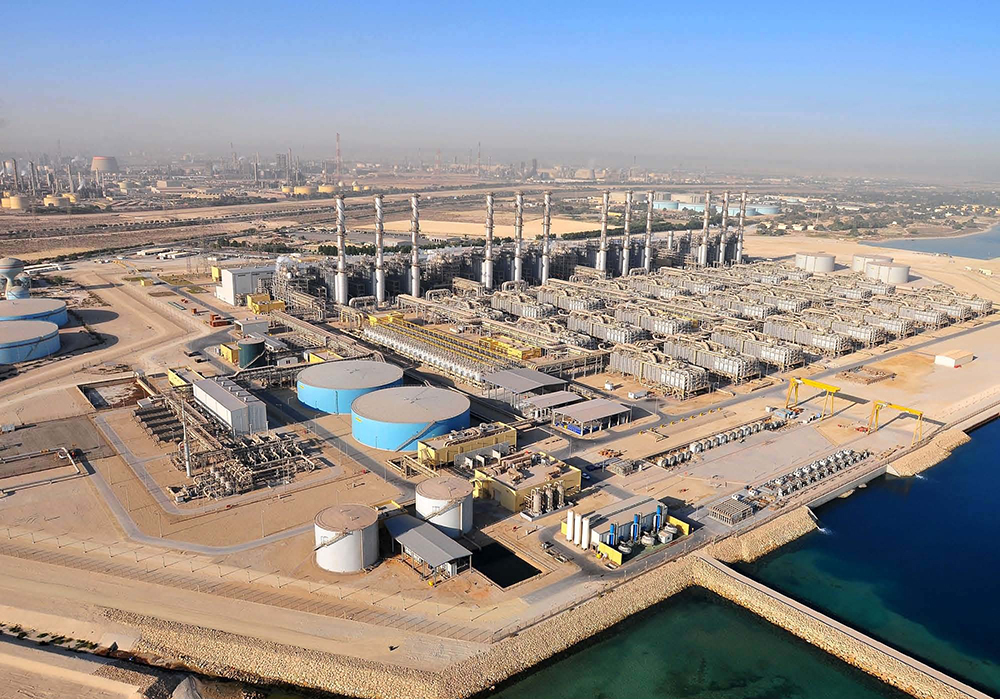QATAR – To accommodate with hosting the World Cup, Qatar has increased its water supply by 10% according to Kahramaa, the country’s water and electricity and utility. The increased water supply draws from Qatar’s large desalinated reserves as well as increasing daily desalination production capacity. The water is used to serve the needs of an expected 1.2 million fans and maintain thousands of acres of grass grown for football fields and training sites. Desalinated water makes up 60% of Qatar’s total water supply and the government heavily subsidizes water for its residents. (TechXplore)
ISRAEL – IDE Technologies, has been awarded the contract to construct a desalination plant in the Western Galilee region of Israel. The plan will be Israel’s seventh desalination plant and will be the first plant constructed in the northern part of Israel.
The plant will have a production capacity of 274,000 m3/d and will supply water to Haifa, the Western Galilee and Upper Galilee regions. The plant will be constructed as part of a Public Private Partnership (PPP) with Israel’s Ministries of Finance and Energy and the Israel Water Authority, at a total cost of $438 million. With this new project IDE has secured their second contract in two years to construct a desalination plant in Israel. (TradeArabia)
U.S.A. – The California Coastal Commission has approved the Doheny Ocean Desalination Project and is the first desalination project the Commission has approved since the adoption of more strict regulations in 2019. While the project still requires other state permits, the Coastal Commission approval was considered the most challenging regulatory hurdle.
The project consists of a $140 million desalination plant that will produce water at a rate of 18,927 m3/d and will serve a small water utility in Orange County, just south of Los Angeles. With the new project the South Coast Water District will have its own direct water supply instead of relying on the State Water Project or the Colorado River.
The plant will utilize a sub-surface intake that creates a barely perceptible current, minimizing impact on marine life and energy required to pump ocean water through the plants reverse osmosis filters. The latter being issues that were brought up by opponents of the Poseidon Water project, which was ultimately rejected. In addition, the brine from the Doheny plant will be mixed with the discharge of a neighboring wastewater treatment plant, limiting the potential harmful effects of having two diffusers pumping effluent into the sea. (WQPmag)
SAUDI ARABIA – Alfanar has been awarded a contract from Saudi Arabia Saline Water Conversion Corp. (SWCC) to build a ground-mounted PV project to provide power to the Al Jubail 2 water desalination plant on the east coast of Saudi Arabia.
The project has been estimated at $320 million and consists of 110 MW ground-mounted PV installation as well as a 380 kV substation and 173 kilometers of overhead transmission lines. With a production capacity of 1 million cubic meters per day, the Jubail plant is one of the largest desalination plants in the world. The PV installation is expected to provide electricity to the plant at a lower consumption rate of 2.16 kWh/m3. (PV magazine)

The Al Jubail water desalination plant. Credit: Acciona
U.K. – Thames Water’s chief executive Sarah Bently revealed that the Beckton desalination plant will become operational again next year. The $300 million plant built at Beckton 12 years ago for the Olympics has only been used on three occasions.
The plant was never built as a permanent site, but because of the recurring dry weather in recent years, Thames Water has been investing to get it operational again to help with London’s water supplies. London’s drinking water supply includes fresh water from the Thames, but the 100,000 m3/d desalination plant will also allow saline water from the Thames Tideaway – where the water is similar to sea water – to be used. (Evening Standard)

